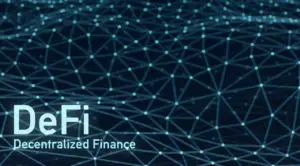What is DeFi? DeFi lending
Decentralized Finance (DeFi) is a set of specialized applications and financial services based on blockchain. The main idea is to create an independent financial ecosystem that is not influenced by regulators. With DeFi, finances become available to anyone. Users conduct transactions and solve financial issues directly with each other. Decentralized ecosystem software allows buyers, sellers, lenders, and borrowers to interact. The difference between centralized (CeFi) and decentralized (DeFi) financial systems is how users achieve their goals. In CeFi, users rely on people and regulations. With DeFi, users rely on technology, software code, and encryption algorithms. You can buy cryptocurrency at trastra.com and use it to trade on such an exchange.
DeFi Fact
The DeFi boom occurred in the coronavirus pandemic. In 2020, the decentralized finance market was growing, adding several billion dollars each month.
What’s shaping the DeFi ecosystem?
- Farming: any activity aimed at getting tokens for an activity. As a rule, they provide their computing power to perform blockchain calculations.
- Issuance of tokenized shares These are essentially analogous to traditional securities, but with the benefits of the blockchain. There are several ways to use such tokens: as a debt or investment instrument, a derivative, or a digital stake. There are also token baskets, that is, the decentralized equivalent of an ETF.
- DEX: Decentralized Exchange (DEX) They do not have an exchange operator. To begin, go to https://trastra.com/coins/buy-btc-with-euro/ and purchase currency. There is no need for registration, identity verification, or commissions. Instead, payments are processed through smart contracts. The platform does not access funds and does not store its customers’ assets. Real exchange takes place without an intermediary.
- Cryptocurrency loans Some users lend their coins to others, and others take them. Decentralized platforms automatically enforce the terms of the loans and distribute interest.
- Synthetic assets are the creation of derivatives (derivatives) on the blockchain. These include contracts that mimic the price behavior of the underlying asset.
The Benefits of DeFi
- Easy access to financial services, especially for those who do not have access to the current financial system.
- The rules for business transactions are written in a smart contract.
- Control over the ecosystem is evenly distributed among all participants in the network.
- Transactions are executed quickly and without a chain of intermediaries.
- The application source code is open for exploration.
- Anyone can create an app and use it. New services can be created by combining other products.
- No supervisors or accounts.

DeFi services have relatively few users. The total number of unique addresses in DeFi at the end of 2021 was just over 3.5 million. More than 60% of transactions in the market for decentralized finance were transactions by large investors of more than $10 million. So far, DeFi lending is available only to closed clubs. But in the future, such loans will become a mass product.




